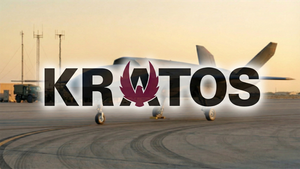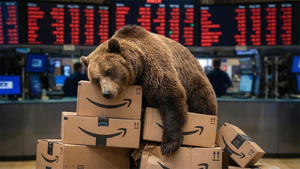 Photo from Unsplash
Photo from Unsplash
Originally Posted On: https://mwaccommercialsanitation.ca/the-role-of-food-safety-and-sanitation-professionals-in-protecting-public-health/
Most businesses and organizations already acknowledge the importance of keeping their customers, staff, and premises safe and free from harmful contaminants. The area of food safety, however, can be especially tricky, with its wide array of potential hazards and the many different storage and preparation protocols. That’s where professionals step in.
Professionals play a critical role in protecting consumers from foodborne illnesses by ensuring that food handling and processing meet regulatory requirements. Without the assurance that the correct cleaning conditions are met, dangerous consequences can often linger.
In this blog, the food safety and sanitation experts at %COMPANY% outline the importance of using a professional service, how they operate, and the risks of subpar preventative maintenance for your business.
Regulatory Compliance: The Role of Food Safety Experts
Federal laws require restaurants and other businesses to abide by strict food safety standards, which are enforced by regular inspections. These inspections are designed to protect public health, so the penalties for falling short are harsh. Failing to pass these inspections can lead to costly fines, damage to your business’s reputation, and even closure in severe cases.
Food safety professionals stay updated on local and federal regulations to ensure their services meet these requirements. Experts will advise you on your safety needs, protocols to implement, and frequency of professional sanitation needed. The goal is to protect public health and keep your business safe and your reputation intact.
A safe and secure environment keeps your customers happy and eliminates liability risks. When a health inspection agency approves your business, your customers will be given the comfort and confidence required to enjoy the food you serve and the environment they enter.
There are plenty of laws and regulations that professionals understand and know how to comply with:
- Food labeling requirements
- Proper food handling requirements
- Temperature control
- Hazard Analysis and Critical Control Points (HACCP)
- Allergen management
- Traceability and recall procedures
- Employee training and education
- Government inspection and enforcement
Sanitation Procedures and Optimal Food Safety: Best Practices
A professional sanitation and food safety service has the equipment, products, and knowledge to eliminate food safety threats and safeguard your business. By adhering to rigorous sanitation procedures, establishments can uphold the highest public health protection standards.
There are lots of strategies sanitation services implement to ensure your business maintains ethical cleanliness standards:
Sanitizing Food Contact Surfaces
Professionals use approved sanitizers and cleaning products to disinfect your food contact surfaces, such as countertops, cutting boards, and utensils. Following sanitation protocols, they eliminate the growth or spread of harmful bacteria and prevent cross-contamination.
Implementing Cleaning Schedules
Professionals will work with you and your business to develop and implement cleaning schedules tailored to the needs of your premises. This includes regularly cleaning food preparation areas, storage areas, equipment, and facilities.
Temperature Monitoring
Sanitation and food safety experts monitor and maintain proper temperatures in refrigeration units, freezers, and hot-holding equipment to prevent pathogens from spreading. They use devices such as thermocouples or infrared thermometers to log temperature readings as part of compliance procedures.
Staff Training and Proper Hygiene Practices
Ensuring you and your staff are trained in proper handwashing techniques, personal hygiene, and food handling practices is critical to running a safe business. Professionals ensure employees understand their roles and responsibilities in maintaining a safe and sanitary environment.
Allergen Management
If you run a food business, you know that plenty of customers request specific allergy-friendly accommodations. With the help of a professional who implements procedures to prevent cross-contact between allergen and non-allergen foods, you can provide products that can accommodate the unique dietary needs of your customers.
How Food Safety Professionals Uphold the Highest Standards
At the core of the food safety and sanitation profession is a commitment to continuous improvement and the highest standards of public health protection. Through ongoing training, professionals engage with industry developments to refine and enhance their practices.
Implementing technological advancements, such as food traceability systems or pathogen detection devices, gives professionals the tools they need to improve quality control measures and adapt to evolving challenges or regulatory changes.
Specialists use a variety of educational sources to uphold the highest standards for your business:
Membership in Professional Associations
Professionals who join associations and organizations dedicated to sanitation and food safety, such as the International Association for Food Protection, can access resources and educational programs to advance their knowledge and practices.
Regular Review of Safety Literature
Food safety and sanitation companies review scientific journals, publications, and industry reports to stay informed about food safety trends, technologies, and best practices. This allows them to integrate discoveries into their services and operate more efficiently.
Professional Development Initiatives
Attending conferences, seminars, and workshops focused on food safety allows professionals to stay current on the latest industry advancements and regulatory changes so businesses that work with them can feel confident they comply with regulatory requirements.
The Risks of Poor Sanitation and Food Safety Standards
The risks associated with poor sanitation and food safety standards are significant and can have severe consequences for businesses and consumers. Without proper sanitation protocols and food safety measures in place, the risk of foodborne illnesses and cross-contamination can increase.
Aside from adverse health consequences, subpar food safety and sanitation can also hurt your business’s reputation.
Professional sanitation and food safety services are crucial in mitigating these risks by implementing and enforcing protocols that adhere to regulatory standards and maintain proper hygiene.
By working with a professional service, businesses can proactively address sanitation and food safety risks, protect public health, and safeguard their reputation.
Here are some of the risks that you can a professional service can address and prevent:
- Risks to staff and public health
- Reputation damage
- Legal consequences
- Loss of revenue
- Business closure
- Increased operational costs
- Product recalls
Protect Your Business: Work With %COMPANY%
With our comprehensive food safety and sanitation professionals, you won’t have to worry about whether your business complies with regulations. We take care of everything for you, from frequent thorough cleaning to ongoing support and consultation.
We align our customized cleaning and sanitation solutions with your business to ensure your cleaning concerns are addressed. Our expert team stays up-to-date with changes in regulations and cleaning protocols to deliver exceptional quality.
In food safety, missing the mark is never an option. Call us at %PHONE1% to fortify your business and guarantee compliance with public health standards.






